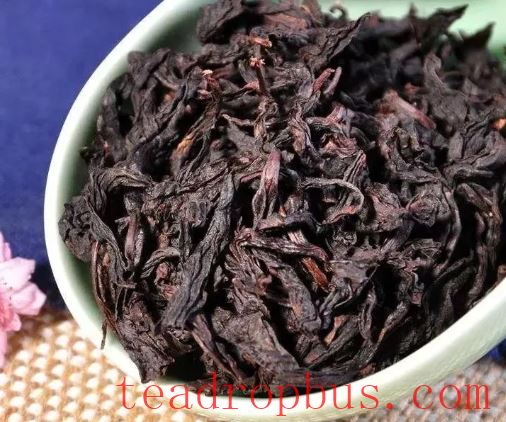Though the pre-rain tea is good, it's too new and has yet to lose its fiery quality, making it unsuitable for drinking. Stored properly, its deep red color will triple its value, and every household will boast of their aged tea.
The complex and unique production process of Wuyi Rock Tea emphasizes the importance of “agedness.” The reason it doesn't pursue “newness” lies in the longer production process compared to other types of tea. From picking the fresh leaves, withering, green-making, stir-frying, and kneading, until the rough tea (initially processed tea) is completed, then sorting out the tea stems and removing the coarse old leaves. Afterward, the tea inspector selects any less-than-perfect tea strips. At this point, only half of the production process is complete.
The rough tea usually requires another one or two months of refinement, depending on whether the tea farmers have enough hands to help. Following that is the crucial charcoal roasting process, which typically needs to be done multiple times.
The charcoal roasting process not only removes the coldness within the tea but also uncovers deeper substances, enriching the flavor. Traditionally roasted teas cannot be consumed immediately in the year they are made as they can easily cause heatiness. Moreover, at this stage, the tea is in a restless period where the internal substances are separated, leading to a scattered taste lacking coherence.

“After roasting, the tea is sealed in boxes for storage. Once the fire has receded, the boxes are opened for consumption. By this time, the fiery quality has dissipated, and the later transformation of the rock tea is complete. Drinking it reveals a rich, full-bodied flavor with a lingering aftertaste.”
Apart from its excellent taste, aged rock tea exhibits significant medicinal properties. According to “Shennong's Classic of Materia medica,” the medicinal value of tea, especially aged tea, is recorded. In Wuyi Mountain, there is a saying: “Three years old is medicine, five years old is a pill, ten years old is a treasure.”
Wuyi Rock Tea is neutral and, when consumed at an appropriate concentration, does not irritate the stomach but instead stimulates bowel movement by forming a protective layer in the stomach, aiding in the healing of chronic gastritis. Many tea enthusiasts have significantly improved their chronic gastritis through drinking aged tea. Aged tea is remarkably effective in treating digestive issues and promoting digestion.
In “The Lost Book of Herbal Remedies” by Chen Cangqi of the Tang Dynasty: “Long-term consumption makes people lean by reducing body fat.” The Caffeine in aged tea promotes the burning of body fat, converting it into energy, generating heat to raise body temperature and promote sweating. Tea saponins inhibit the activity of lipase, reducing intestinal absorption of fats, thereby controlling weight and aiding in weight loss.
In “Tea Assignment” by Wu Shu of the Song Dynasty: “Its ability to cleanse the mind, quench thirst, transform bones, and lighten the body is so profound that it seems divine.” Note: (In ancient times, “thirst disease” referred to modern diabetes). Experiments have shown that tea polyphenols and tea polysaccharides inhibit the activity of amylase and sucrase in the human body, preventing the digestion and absorption of ingested starches and polysaccharides, which are then directly expelled, thus helping to control blood Sugar levels. This is greatly beneficial for both the treatment and prevention of diabetes.
Aged tea contains valuable plant nutrients such as theaflavins and catechins. Among them, theaflavins are polyphenolic compounds formed by the polymerization of catechins during fermentation. They are recognized for their role in lowering cholesterol levels in the human body and are often referred to as the “soft gold” of tea. Tea polysaccharides can regulate the concentration of cholesterol and fats in the blood, helping to prevent high cholesterol and arteriosclerosis.
There is an enzyme in the human body called angiotensin-converting enzyme (ACE), which causes blood pressure to rise. In vitro experiments have found that tea polyphenols inhibit ACE. Tea contains components that lower blood pressure, including gamma-aminobutyric acid (GABA).
Aged tea possesses antioxidant factors and promotes Metabolism in the human body. Clinical trials have shown that aged Wuyi Rock Tea inhibits the generation of peroxides in the body. Peroxides have a significant impact on cellular and organismal aging and degenerative diseases. Regular and moderate consumption of aged tea can suppress excess abnormal lipids in the body, improve metabolic function, and achieve miraculous effects such as beautifying the skin, maintaining health, and delaying aging.